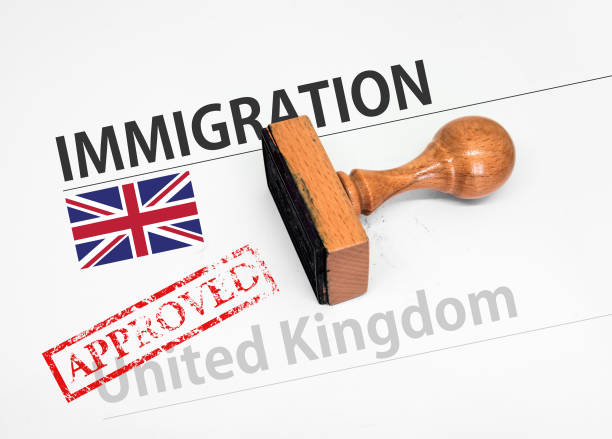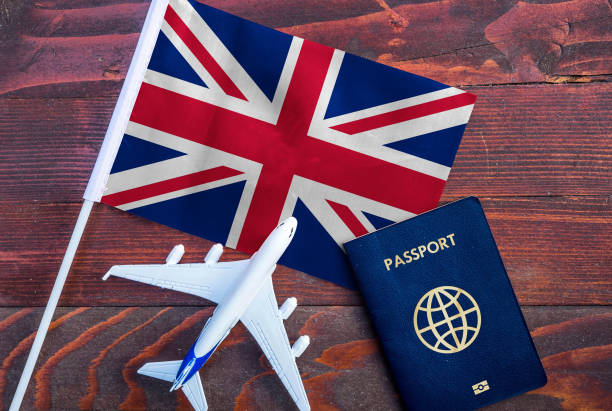Immigration and Travel
How to Enter and Obtain the UK Permanent Residence
Before embarking on the path to permanent residency in the UK, you must first enter the UK as a temporary resident.
Several avenues can lead you to the UK, depending on your purpose of visit.
Understanding the visa requirements and application process is paramount.
Outlined below are the key steps you should take to ensure entry into the UK
Select the Appropriate Visa
Determining the right visa category that aligns with your purpose of visit is essential.

Various factors, including your nationality, reason for visiting, duration of stay, and personal circumstances, will influence the type of visa you require.
Here are some visa options based on different purposes:
Visitor Visa
If you’re visiting the UK for leisure, meeting friends or family, or engaging in short-term study or business activities, the Standard Visitor visa is suitable. Note that employment is not permitted under this visa.
Student Visa
Depending on the duration, type, and location of your study program, different visa options are available.
These include the Standard Visitor visa for short courses, and the Short-term study visa for English language courses over 6 months.
The Student visa is for longer courses offered by licensed educational institutions, and the Child Student visa is for students aged 4 to 17 studying at independent schools.
Work Visa
If you intend to work in the UK, you’ll need a work visa. The specific work visa category depends on factors such as your skills, qualifications, job offers, sponsorship, and the nature of your work.
Work visa options include those for business, sports, charity, religion, and entrepreneurship.
Family Visa
If you have a British citizen or someone with settlement status in the UK as a spouse, partner, or family member, you can apply for a family visa to join them.
Financial support may be required, and after a certain period in the UK, you may be eligible to apply for indefinite leave to remain (ILR).
Prepare Your Application
Once you have determined the appropriate visa category, it’s crucial to gather all the necessary documents and information for your application.
While the specific requirements may vary depending on the visa type, some common documents include:
- Valid passport
- Completed visa application form
- Proof of financial stability
- Confirmation of accommodation in the UK
- Travel itinerary
- English language proficiency test results (if applicable)
- Educational qualifications and course details (for student visas)
- Job offer or sponsorship details (for work visas)
- Relationship documentation (for family visas)
Prove Your Identity
As part of the visa application process, verifying your identity is crucial.
Typically, you’ll be required to provide biometric information, such as fingerprints and a photograph, at a designated visa application center.
It’s important to carefully follow the instructions provided by UK Visas and Immigration (UKVI) regarding the submission of biometrics.
Application Decision
After submitting your visa application and completing the biometric process, your application will undergo a review by the UKVI.
The processing time can vary depending on the visa type and your location.
It’s important to allow sufficient time for your application to be processed before your intended travel date.
Tracking Your Application
You can track the progress of your application using the online tracking system provided by UKVI.
This allows you to stay informed about the status of your application and any additional documents or information requested.
Receiving the Decision
Once a decision has been made on your visa application, you will receive a notification.
In the case of a successful application, you will be granted a visa vignette, a sticker placed in your passport that permits entry into the UK.
Please, carefully review the details on the vignette to ensure accuracy.
Congratulations! You’re now in the UK. Let’s explore the steps toward achieving permanent residency.
Securing Successful Permanent Residency in the United Kingdom
Permanent residency in the UK is commonly referred to as indefinite leave to remain (ILR).
Obtaining ILR grants individuals the right to live, work, study, and access benefits in the UK without time restrictions.
Below, we’ll discuss various pathways to obtaining ILR:
Eligibility for Indefinite Leave to Remain
To qualify for indefinite leave to remain, specific eligibility criteria must be met based on your circumstances.
EU, EEA, or Swiss citizens may apply for settled status under the EU Settlement Scheme, while non-EU citizens must fulfill requirements based on factors such as work visas, family connections, or residency duration.
Applying for Indefinite Leave to Remain Based on Work Visa
If you hold a work visa, you may be eligible to apply for indefinite leave to remain after living and working in the UK for a certain period.
Generally, the requirement is five years, although it can be shorter for individuals with Tier 1, Innovator Founder, or Global Talent visas.
The application process also considers salary or financial requirements associated with your specific visa.
Applying for Indefinite Leave to Remain with Family in the UK
If you have a partner, parent, child, or other relatives who are settled in the UK as British citizens or individuals with indefinite leave to remain, you may be eligible to apply for indefinite leave to remain based on family ties.
The application process depends on your visa status and the settlement status of your family member.
Qualifying for Indefinite Leave to Remain after 10 Years in the UK
Individuals who have resided in the UK for ten years or more may be eligible to apply for indefinite leave to remain based on their long-term residency.
Different rules apply if you hold a visa based on your private life, and applications for this category typically open in June 2022.
Indefinite Leave to Remain for Commonwealth Citizens
Commonwealth citizens who have resided in the UK for five years under a UK Ancestry visa may be eligible to apply for indefinite leave to remain.
Additionally, some Commonwealth citizens may possess the “right of abode” in the UK, allowing them to live and work without immigration restrictions.
Other Ways to Apply for Indefinite Leave to Remain
There are alternative routes to securing indefinite leave to remain in the UK.
These include being a refugee or having humanitarian protection or Discretionary Leave, returning to the UK after having had indefinite leave to remain or serving in the armed forces.
For further guidance, it is recommended to seek advice from the Citizens Advice website.
FAQs
What is indefinite leave to remain (ILR) in the UK?
Indefinite leave to remain (ILR) is permanent residency in the UK, granting individuals the right to live, work, study, and access benefits without time restrictions.
Can I become a British citizen after obtaining indefinite leave to remain (ILR)?
Yes, after obtaining indefinite leave to remain (ILR), you have the opportunity to apply for British citizenship through a process known as naturalization.
Conclusion
The United Kingdom is an attractive destination for immigrants worldwide, offering excellent educational institutions, well-paid job opportunities, and a high standard of living.
To ensure entry and successful permanent residency in the UK, it is crucial to understand the visa requirements, choose the appropriate visa category, and prepare a comprehensive application with all necessary documents.
Once you attain indefinite leave to remain in the UK, you can even explore the path to becoming a British citizen.












